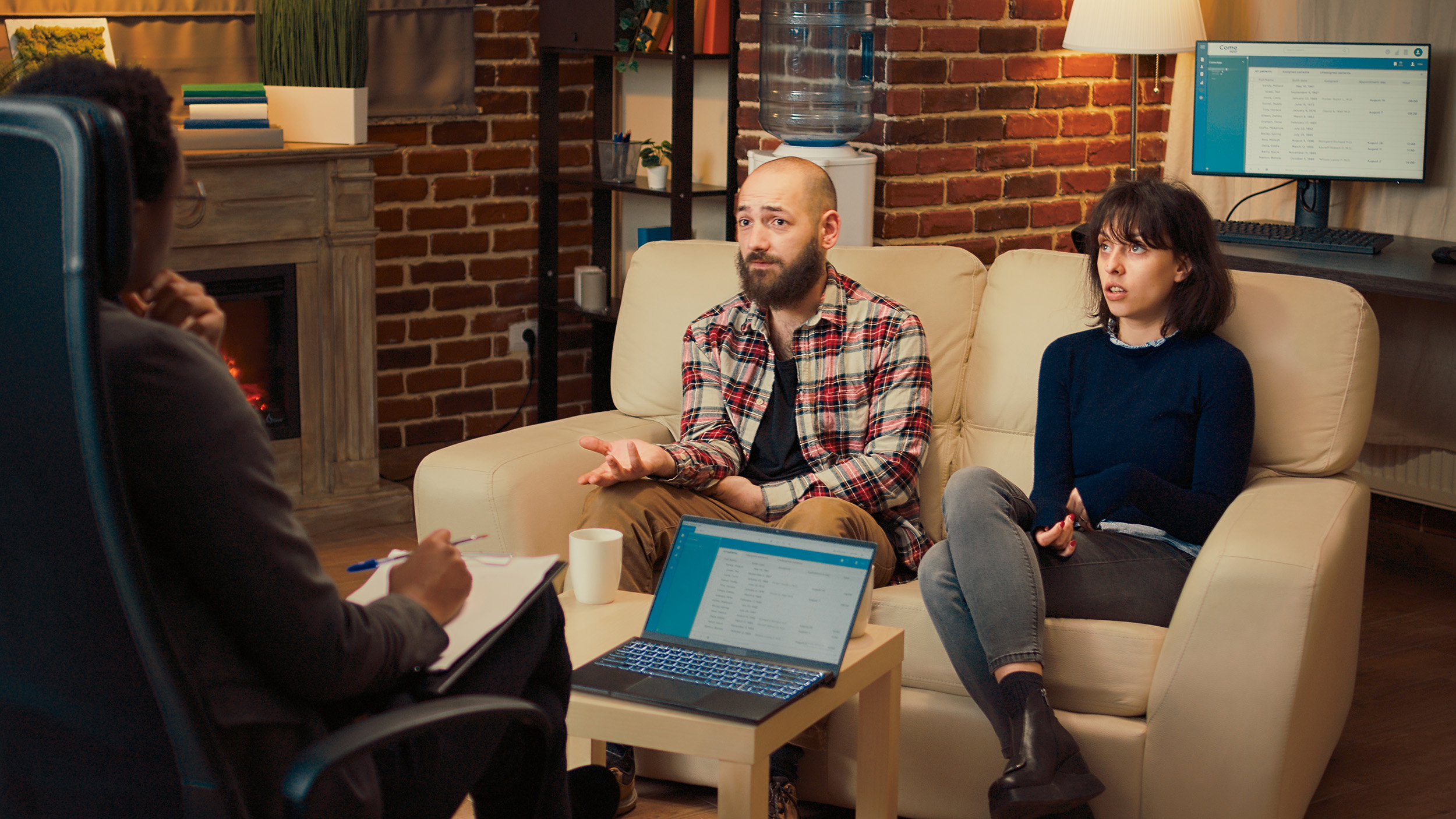Every relationship has its seasons. There are moments of blissful connection, laughter, and effortless understanding. And then there are times of distance, misunderstandings, and quiet frustration. When you find yourselves in the latter, it can feel like you’re speaking different languages, and the beautiful intimacy you once shared has faded into the background. It’s a painful place to be, and it’s also a very common one. The good news is, you don’t have to stay there. Couples therapy is not a last resort for relationships on the brink of collapse; it is a proactive and powerful tool for growth, healing, and profound reconnection. It provides a structured, safe space to untangle the knots of long-standing issues and lay a new foundation for a more vibrant, resilient partnership. This isn’t about blaming or finding fault. It’s about learning new skills, understanding each other on a deeper level, and remembering why you chose to walk this path together in the first place.
What Are the Signs That You Could Benefit From Couples Therapy?
Recognizing the need for support is the first and most courageous step. It takes a willingness to look at the relationship honestly, without judgment. There’s no single signal that screams “It’s time for therapy,” but rather a collection of recurring patterns that erode the sense of partnership and well-being. Are you finding that every conversation devolves into an argument? Or perhaps you’ve stopped arguing altogether, replaced by a chilling silence and avoidance? This lack of effective communication is a major red flag. One partner may feel unheard, while the other feels misunderstood, creating a cycle of resentment and emotional withdrawal.
Another key indicator is a noticeable decline in intimacy, both emotional and physical. Intimacy isn’t just about physical closeness; it’s about feeling emotionally safe and connected to your partner. If you no longer share your day, your fears, or your dreams, or if physical affection has become a rarity, it signals a growing emotional distance. Conflicts are another area to watch. Every couple experiences disagreements, but if conflicts are no longer productive and instead leave you feeling hurt, defeated, or more disconnected than before, it’s a sign that your current conflict resolution methods aren’t working.
- Constant arguments or a complete lack of communication: When every talk becomes a fight, or you simply stop talking to avoid one.
- Loss of emotional and physical intimacy: Feeling like roommates rather than partners, with little to no shared vulnerability or affection.
- Recurring conflicts without resolution: Repeating the same arguments over and over with no progress.
- Resentment building over time: Holding onto past hurts and letting them color every interaction.
- Major life transitions causing stress: A new baby, a career change, or a health issue can put immense strain on a partnership.
- Feeling stuck and hopeless: Believing that things will never get better or that your partner will never change.

How Does Couples Therapy Help Improve Communication?
Communication is the lifeblood of a relationship, and when it’s clotted with unresolved issues, the whole system suffers. Couples therapy is essentially a master class in effective communication. It’s not just about talking; it’s about learning how to be heard and how to truly listen. A skilled therapist acts as a neutral guide, interrupting old, destructive patterns and introducing new, healthier ones. You’ll learn the difference between expressing a feeling and making an accusation. For example, instead of saying, “You never listen to me,” you’ll learn to say, “I feel unheard when I’m trying to share my feelings.” This subtle shift from “you” statements to “I” statements is incredibly powerful, as it focuses on personal feelings rather than attacking the other person.
Therapy also teaches active listening, a skill that is often forgotten in the heat of an argument. Active listening involves not just hearing the words but also understanding the emotions and intentions behind them. It’s about reflecting back what you’ve heard to ensure you’ve understood it correctly, which can prevent countless misunderstandings. The therapist provides a safe and structured environment where both partners can practice these new skills without fear of judgment. They can help you identify and articulate underlying needs and wants that may be getting lost in the conversation. For instance, an argument about leaving clothes on the floor might not be about tidiness at all; it could be about a partner feeling disrespected or unappreciated. By teaching you to go beyond the surface, therapy helps you uncover and address the real issues, leading to more meaningful and lasting solutions.
Why Is Rebuilding Intimacy a Key Component of Therapy?
Intimacy is not a given; it’s a garden that needs continuous care and attention. When communication breaks down, intimacy is often the first casualty. Emotional intimacy is built on trust, vulnerability, and a feeling of being seen and understood. When you feel disconnected from your partner, sharing your true self can feel risky. You may fear judgment, rejection, or simply being met with indifference. Couples therapy creates a pathway back to that vulnerability. The structured conversations and guided exercises help you and your partner reconnect on an emotional level. You learn how to express your needs and desires in a way that your partner can hear and respond to.
Physical intimacy, which is often a reflection of emotional intimacy, also benefits from this process. When couples feel emotionally close, it’s much easier to feel physically connected. Therapy can help you talk about your physical relationship openly and honestly, addressing any underlying issues, insecurities, or fears that may be holding you back. A therapist can help you navigate these sensitive topics with respect and compassion, fostering an environment where you can both express your desires and concerns without feeling judged. By addressing the root causes of the emotional distance, couples therapy can help you rekindle the spark and rebuild a sense of closeness and shared affection that may have been lost over time.
How Do You Know If Couples Therapy Is the Right Choice for Your Relationship?
Deciding to start couples therapy is a significant decision. It requires both partners to be willing to engage and to do the work. The first step is to have an open conversation with your partner about your feelings and the state of the relationship. It’s important to frame it not as a demand or an ultimatum, but as an opportunity for both of you to grow and improve your partnership. You might say something like, “I really love our relationship, and I want to find a way for us to communicate better and feel closer. I think talking to a professional could help us.”
It’s also crucial to find a therapist who is a good fit for both of you. Many therapists offer an initial consultation to see if their style and approach align with your needs. You should feel comfortable and safe with the person you choose. Remember, therapy is a process, not a quick fix. It takes time, effort, and commitment from both partners. Be prepared to be honest with yourself and your partner, and to be open to new ways of thinking and behaving. The journey is often challenging, but the potential rewards, a stronger, more connected, and more loving relationship, are well worth the effort.
- You’re both ready to work on the relationship: Both partners must be willing to engage and be open to change.
- You’ve tried to solve problems on your own without success: When self-help books and conversations aren’t enough, professional guidance can be transformative.
- You want to proactively prevent future issues: Therapy isn’t just for crises; it’s for building a more resilient and healthy partnership.
- You’re committed to the process: Understanding that it takes time, effort, and consistent attendance.
What Are Realistic Expectations for Couples Therapy?
Entering couples therapy with the right mindset is key to a successful outcome. It’s not a magic pill that will instantly solve all your problems. The goal is not to “fix” your partner, but to provide you both with the tools and insights to improve your relationship together. One of the most common misconceptions is that the therapist will be a judge, siding with one person over the other. A good therapist remains neutral, focusing on the dynamics between you, not on who is right or wrong. They will challenge both of you to take responsibility for your own actions and communication patterns.
A realistic expectation is that you will learn new skills. You’ll learn how to express yourselves more clearly, how to listen more effectively, and how to navigate conflict in a way that builds connection instead of tearing it down. You can also expect to gain a deeper understanding of your partner’s perspective and needs, and a greater awareness of your own emotional triggers and reactions. The process can be difficult at times, as it requires confronting uncomfortable truths and past hurts. However, by working through these challenges with professional guidance, you can achieve a level of intimacy and connection that you may have thought was no longer possible.
- The therapist is a facilitator, not a judge: They are there to guide, not to take sides.
- Change takes time and effort: You must be committed to practicing the skills learned in sessions.
- The goal is improvement, not perfection: The aim is to create a healthier, more resilient relationship, not a conflict-free one.
- You will gain new skills and insights: You will learn about yourself and your partner on a deeper level.

Conclusion
A loving, intimate partnership is one of life’s most rewarding experiences. But like anything of value, it requires care, attention, and a willingness to work through challenges. If you and your partner feel like you’re in a rut, struggling to connect, or navigating constant conflict, please know that you are not alone. And more importantly, you have options. Couples therapy offers a path forward, a way to mend what is broken, strengthen what is weak, and remember the love that brought you together in the first place. It is an investment in your shared future, a courageous step toward building a relationship that is not only enduring but also deeply fulfilling.
Ready to start your journey toward a more connected relationship? Contact Inner Summits today to schedule a consultation and take the first step toward rebuilding intimacy and communication.
Disclaimer: This is for informational purposes only. For medical advice or diagnosis, consult a professional.
FAQs about Couples Therapy
Q1: What exactly is couples therapy?
A: Couples therapy is a form of psychotherapy that helps two people involved in a romantic relationship gain insight into their relationship, resolve conflicts, and improve relationship satisfaction. It is facilitated by a licensed therapist who provides a neutral and safe space for both partners to communicate openly, learn new skills, and address underlying issues. The therapist’s role is not to take sides but to guide the couple toward a healthier way of interacting and connecting.
Q2: How long does couples therapy typically take?
A: The duration of couples therapy varies greatly depending on the couple’s specific issues and goals. Some couples may find a few sessions are enough to get them back on track, while others may benefit from a few months or even a year of therapy to address deeper, long-standing problems. The frequency of sessions is also flexible, with many couples starting with weekly sessions and then spacing them out as they make progress.
Q3: Can couples therapy save a relationship on the brink of divorce?
A: While couples therapy can be highly effective in helping couples navigate and overcome significant challenges, it is not a guaranteed solution. Its success depends heavily on the willingness and commitment of both partners to engage in the process, be open to change, and do the necessary work outside of the sessions. It provides the tools and guidance to heal and rebuild, but the ultimate outcome rests with the couple.
Q4: What if my partner is unwilling to go to therapy?
A: It can be challenging if one partner is reluctant to attend. In this situation, individual therapy can be a great starting point. An individual therapist can help you understand your role in the relationship dynamics, develop healthier communication skills, and learn how to approach the topic of couples therapy with your partner in a way that feels less threatening. Sometimes, seeing the positive changes in one partner is enough to encourage the other to join.
Q5: Is couples therapy only for severe problems?
A: No, couples therapy is not just for relationships in crisis. Many couples seek therapy to proactively strengthen their connection, improve their communication skills, or navigate a difficult life transition, such as becoming new parents or dealing with a job loss. It’s a powerful tool for maintaining a healthy and resilient partnership and can prevent minor issues from escalating into major conflicts.
Get Matched with a Therapist.
Because finding support should never be as hard as what you’re going through.
